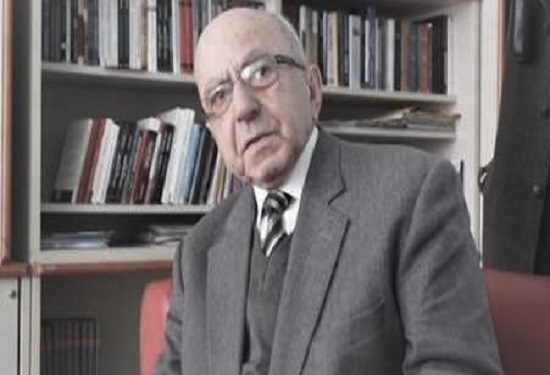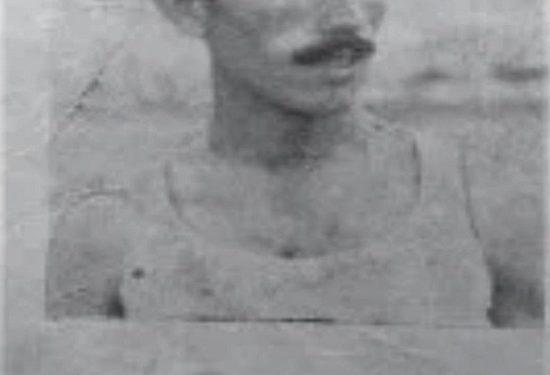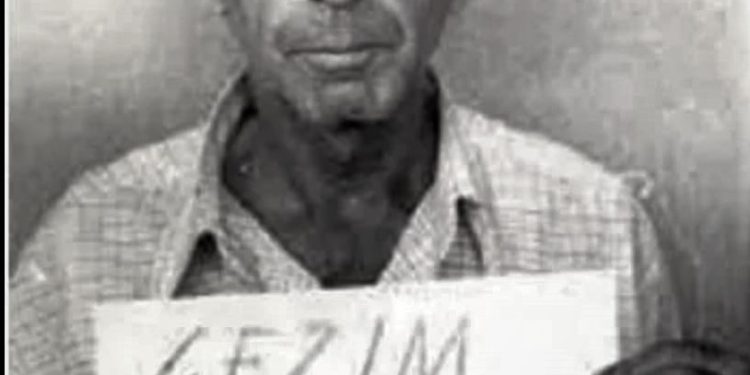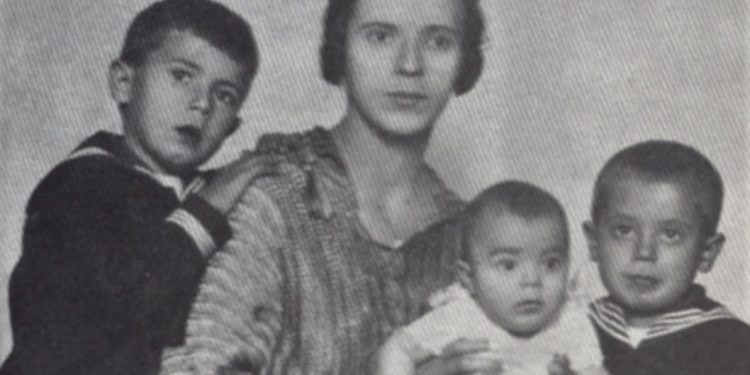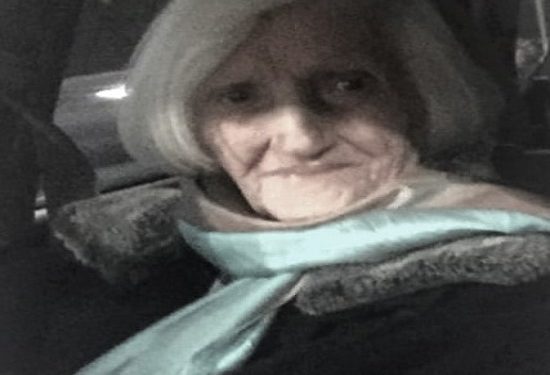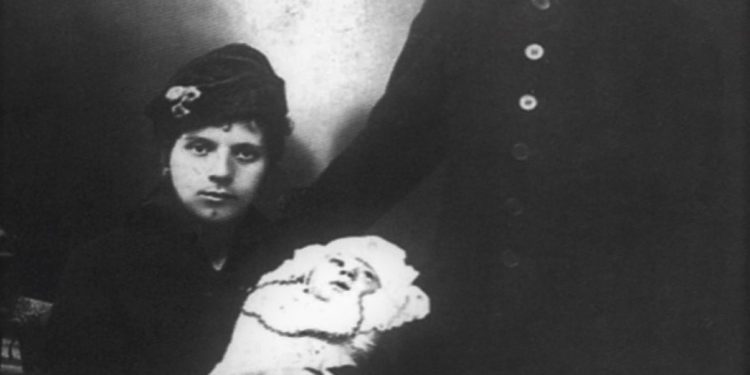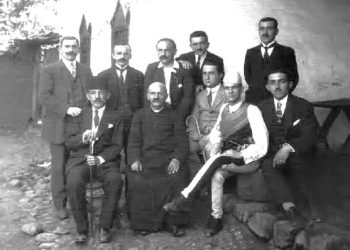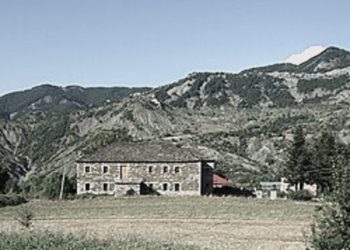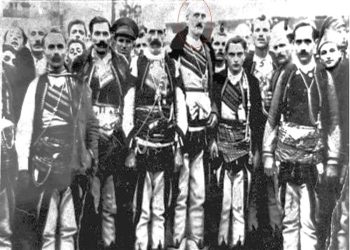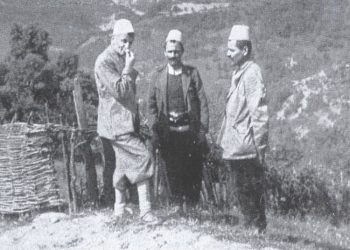From Gëzim Peshpia
The sixth part
Memorie.al / From time to time I had published some writing about disconnected events with the permanent hesitation towards the well-known pens that brought this tragic time through their books. Even the passive description does not work, that’s why I had to become a commentator of this period in order to present not only the tragic, but in general the life. With these glimpses of stories I do not pretend to bring vivid images, but a very small contribution to the memorial in honor of their memory.
Galip Sojli, this Albanian Sorge…!
– The story of the legend of the 50s, the former partisan who became a saboteur-informer in Yugoslavia…! –
After the solemn dinner served in the “Palace of Brigades”, Galip had reason to be happy, after a few drinks. Mehmeti had called him when he was near Enver and introduced him as the future ambassador to the German Democratic Republic. But …Galip Sojli, the legend of the 50s, who was said to be a skilled detective, polyglot, a 007 agent, was not much exposed as such.
He was known as a former partisan, athlete and champion in running 800, 3000, 5000 and 10,000 meters. He was married to Myzafera, a medical assistant, with whom he had been connected since the time of the War, when they were both partisans of the same brigade.
Galip was known as an employee of SH.N.U.M., his real skill at that time was: saboteur-informant in Yugoslavia. Few were those who were aware of his true activity. Together with his war friend, Marko Laçka, they had carried out many actions.
It showed that after a successful action in the robbery of the Bank of Struga, on the run, he had killed an Italian who had to be captured alive, while he kept the revolver in his pocket, ready to fire.
As always, in this action of three people, his inseparable friend, “Marko Katili”, or as he was nicknamed since he was a partisan, Marko Laçka, also took part. They were operating in an area they knew very well, especially as a terrain.
Although Galipi was born in Tirana, his own father was educated in Vienna, in the field of economics and had exercised the function of mayor in Struga, therefore the territory was very familiar to him. For Galip and Marko, entering and exiting the border was not a problem. They oriented symmetrically throughout the territory.
Galip, when he remembered the moment of his capture by the Yugoslav police, argued with Marko and they always blamed each other. Immediately after the arrest, Dushan Mugosha, whom he knew personally, had visited him in the dungeon. That’s where his “betrayal” began. I remember very well that, at the time I was in the seventh grade, when he gave a “terrible” interview on the radio.
Naimi, my uncle’s son, who had been a classmate in the high school in Tirana, after hearing the interview, came down the stairs from the room where he was and, holding his head in his hands, called out: “Pu-pu-pu what did Galip Gazepi do. ..”! When I told this to Galip, he laughed and once said to me: “How, what did Naimi say about me?” – and gajasej.
In 1953 he was released from prison, and later worked at the “Balkan” hotel in Belgrade. As he knows Italian, German, French and Serbian, he is assigned to the reception. In the meantime, he meets Panajot the Elder, who longingly asked him to meet again.
In the last meeting with him, he had noticed a strange behavior from him. She had the impression that he wanted to say something to her, but in the end he didn’t say anything. Later, Panayoti looked for him once more, but this time Galipi did not find him alive.
Galipi said that he regretted this moment, from which he had not been able to understand what Panayoti wanted to tell him. Later, although he did not give details, it was understood that he had tried to get in touch with the Albanian State Security, but at the risk of being arrested again, he escaped from a village near Maribor in Austria.
Then, at that time, this area was in the hands of the Soviets. Passes from Graz to Salzburg, doing various jobs. He recalled with a laugh that he had worked as a “Fensterputzer” (window cleaner) in the house where Mozart was born, as well as in the church where Mozart’s father, Leopold, worked as a “Kapelmeister” (master of music and church choir).
Fearing that the Soviets could return him to Albania, deranged, he fled to the American zone, where he was subjected to an intensive investigation, now suspected not as an Albanian agent, but as a Soviet KGB agent.
“It was nothing like the famous investigative car that the Americans used,” he said. “There they passed me and I saw no result in the graphs that were marked as a result of the emotional state. I had now become the master of the root, so that my mental state left no trace at all when I answered briefly with “yes” or “no”! – laughed Galip, the pre-supposed “Soviet agent” infiltrated in the American zone in Austria.
Terrorized by the frequent sessions of the American interrogation and under the friendly suggestion of an interpreter, who warned him of the danger that awaited him, he made the fatal mistake, escaped and returned to Yugoslavia. Given the circumstances, his only alternative was Italy, but unfortunately, intuition led him to the wrong place, Yugoslavia.
Galip remembered the moment when he had just crossed the border. While he thought he had come to the land that would save him, he found himself surrounded by villagers with scythes, sickles and pitchforks, which with this rare trophy made a patriotic gesture: handing it over to the border post.
– “Why did you want to escape”? – asked the officer at the post office sitting in front of a typewriter.
– “I didn’t want to escape,” Galip replied, “but I came from Austria”.
– “What”? – cried the officer, moving the chair away from the table, and after putting his finger to his right eye, he pulled it down and continued: “Is there loot here? I’ve been in this job for twelve years. Well, well, finally I’ll write what to say, just don’t think you threw me. There are others who will deal with you”!
In twelve years, the officer had not been shot by someone escaping from the West to the East!
Here began the most difficult period of his adventurous life.
He had spent a terrible winter under a makeshift dungeon staircase. She had served a German “Scheffer” dog, while that winter for Agent Galip, who even when he told me the story, wondered how he had survived that period!
– “I had two options,” Galip told me, “either to sit with my head resting on my knees, or to faint, I should turn around and stand with my head down as Muslims pray.” During the two winter months, the nights were long and frosty.
When the door to the corridor was opened there was a roar, from the outside I felt as if needles were sticking in my whole body. And when the corridor was washed with a water hose, I lifted the cardboard and the blanket over my head, so that they wouldn’t get splashed, because they never dried.
I got out of that cage with the joy that I would loosen my limbs and straighten my back, but this joy did not last, because the most perverse tortures that had been invented began on me.
Beneath my screams and their slurs with dirty words, the marks of lit cigarettes were endlessly registered on my body. A man who was shooting me with a twisted whip said to another:
– Do you know that German mother of this one in Tirana? Eh, what a whore! Oh what he called when he did that job. This dog, son of a dog, brings out her longing for me…!
How many espionage stories did I create through the minutes? – What Mr. Sorge, you mor! He was nothing before me. I tried to smell how they wanted Sorgen, in the service of the Albanian Security, the Soviet KGB or the American CIA, and then I started to let my imagination run wild by creating series of films and volumes of novels. They beat you, insulted you, and broke you. The heroes who resist these tortures are only in novels and movies”.
After the second sentence, he was left under surveillance in a small semi-free place. There he smelled that they were waiting to exchange him with someone so that he would return to Albania. Frightened, with the help of a comrade from the War, who was disabled, following the latter’s advice, escapes to Italy.
There, in the camp, he serves as a translator and with the support of some Swedes who were part of the Red Cross; he goes to Sweden, where he stayed for a year, and then returns to Albania to continue the ordeal voluntarily.
I looked at her like a dry old woman smoking cigarettes after thickly rolled cigarettes, often interrupted by a bad cough that came from her chest. Many despised him as a “man of command”, who had become a witness to so many people to be re-convicted.
Few saw him as a broken man. Few knew the other side of his coin, the tragic one. I once saw him very nervous. After an absence of about 2-3 weeks, he came pale in the face. As soon as I saw him, I said laughingly in German:
-Eo warst Du denn, ëieder INS Krankenhaus?
-“Please don’t speak to me in German, I told you, did you hear”? – He called me, showing the distance.
To be honest, I was scared and took it as a threat. I didn’t speak to him at all for ten days, pretending to be offended. We always spoke German when we were alone. I practiced the language so I wouldn’t forget it.
I had also learned some songs from him. In the artistic group, we had an accordion which he played lightly and sang a sad song when we were away from others. He had often sung it in exile, because it reminded him of Albania.
“Wo die Zippressen blühn.”
Am blauen Meer
Dort ist die Welt so schőn
So ëunderschőn
Drauβen in der Lauben
Trinken ëir dann Wino
Und bei jedem kuβ
Sagst du mir leise: o bambino”.
“Where the cypresses bloom,
Blue sea shore.
There the world is so beautiful,
So wonderful.
Out under the pergola,
We drink a glass of wine
And after every kiss
You say to me easily: o bambino”!
The warning to stop speaking German didn’t last long. One day, Galip approached me and said: – “Listen: don’t be angry with me for telling you like that.” Do you know that the last time I was a witness for Beqir Xhepa? Well, I had a friend since the time of the War. They forced me to testify, but even though I told the truth and did not slander… they forced me, do you understand? I’ve been broken, I can’t stand anymore. I am declared as a man of command.
Well, what does a man like Spartacus mean, who comes and talks about reprehensible things with me? To provoke me whether I will report it or not? No sir, I left all the good things to return at any cost to my mother, wife and children. I put my head in danger because I had no security or guarantee for life when I got on the plane to Tirana. What I’m telling you, believe me; it’s in your best interest.”
Galip often appeared sentimental. He spoke about his mother with special delicacy. He told how she had nurtured his and his sister’s love for flowers. Without getting bored, she talked to them for a whole hour about the flower, about the petals that surrounded it, how it bloomed from the bud, and so on.
When she had her seventy-fifth birthday, she came on a long date and celebrated with her son. While Galip, laughing, told us how he had danced the waltz with her, singing in the Viennese dialect:
“Mein Mutter ist e Vänerin
Weil hob’ich Win so gern…”!
One day he argued loudly with a young man and they bet on a running race. At that age, he surprised us when, full of style and elegance, he ran fast and won convincingly, although he had a difference of over twenty years with his rival.
Lean but muscular, he ran like a young man. Galipi had talent as an actor. In 1954, after being released from prison, he participated in the theater group of Skopje. There he also met Nexhmije Pagarusha, not as a singer, but as an actress. An artistic group was also formed in the prison.
Everyone remembered the show they gave on November 28-29, especially for two moments. The first moment was when the Chams became sad, while Osman Taka’s dance was danced. While the next moment, when Galip came on stage, in the role of Jesus Christ, just like in the paintings where he is crucified.
Hilarity in the hall. His emaciated and naked body, I say, would be the most perfect picture of the crucified Christ seen by a thousand people, who filled the dining room. This interpretation also had its consequence, which made many people gasp: Galip caught a cold and lay down with a fever for several days. Memorie.al




